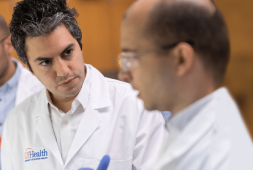
Stem cells are increasingly being utilized in various medical treatments, and a recent breakthrough from Shanghai suggests that the most significant advancements are yet to come. A senior citizen who had been battling type-2 diabetes for 25 years has not required insulin for 33 months following a regenerative islet cell transplantation.
Diabetes, especially type 2, which often develops due to poor diet and lifestyle choices, is among the most widespread non-communicable diseases globally. China, in particular, is a significant diabetes hotpot, with approximately 140 million people suffering from the disease. These individuals struggle to produce their own insulin, leading to sever complications such as kidney problems, blindness, amputations, and cardiovascular issues.
However, this groundbreaking development, the result of a decade of research and testing, has the potential to revolutionize diabetes treatment. Yin Hao, a leading researcher on the team and the director of Shanghai Changzheng Hospital’s Organ Transplant Center, explained that they used the patient’s peripheral blood mononuclear cells. These cells were reprogrammed into pluripotent stem cells using existing methods and then injected into the patient’s pancreas.
“Our technology has matured and it has pushed boundaries in the field of regenerative medicine for the treatment of diabetes,” Yin, told China Daily whose team conducted the research with scientists from the Center for Molecular Cell Science at the Chinese Academy of Sciences.
Current transplant treatments for type-2 diabetes face significant challenges, primarily due to a scarcity of donor cells and the complex nature of pancreatic islet cell isolation technology. Pancreatic islet cells are crucial as they are the primary insulin producers in the body.
In this case, the patient’s islet cells were almost entirely non-functional, necessitating multiple daily insulin injections and a kidney transplant.
In 2021, after receiving the manufactured stem cells, the patient gradually reduced his reliance on external insulin over an 11-week period. Remarkably, his condition appeared to be largely resolved following this treatment. This successful case marks a significant milestone in diabetes treatment and offers hope for millions of others suffering from the disease.
“Follow-up examinations showed that the patient’s pancreatic islet function was effectively restored, and his renal function was within normal range. Such results suggested that the treatment can avoid the progression of diabetic complications,” Dr. Yin said.
The details of this breakthrough were published in the journal Cell Discovery on April 30th. The study’s authors suggest that future research should focus on exploring the pharmacology of drugs that might provide off-the-shelf equivalent for islet transplantation. Such advancements could potentially make the treatment more accessible and scalable.
Stem cell therapy has been a topic of great interest and excitement in the medical community due to its potential to regenerate damaged tissues and organs. This case exemplifies the transformative power of stem cell research and its application in treating chronic conditions like diabetes.
By converting the patient’s own blood cells into pluripotent stem cells and then into insulin-producing islet cells, the researchers have demonstrated a novel approach that could circumvent the limitations of current treatment methods.
This breakthrough aligns with the broader trend of personalized medicine, where treatments are tailored to the individual’s genetic and biological profile. Personalized medicine provides the potential for more effective and targeted therapies, reducing the risk of adverse effects and improving overall outcomes.
As research progresses, the potential applications of stem cells therapy continue to expand. In the context of diabetes, the ability to restore insulin production using a patient’s own cells could significantly reduce dependence on external insulin and improve quality of life.
Moreover, the successful use of regenerative islet cell transplantation in this case paves the way for further innovations in treating other chronic and debilitating diseases.



